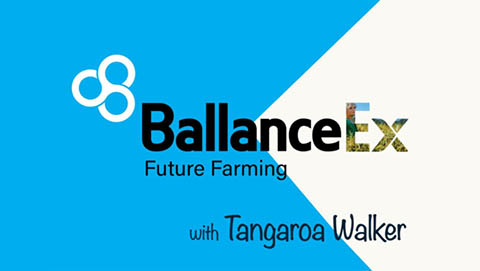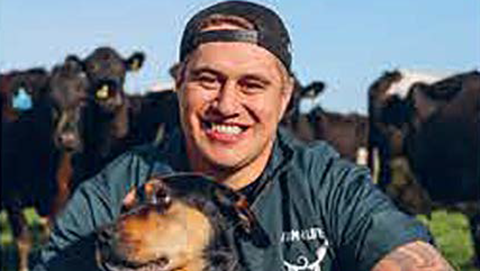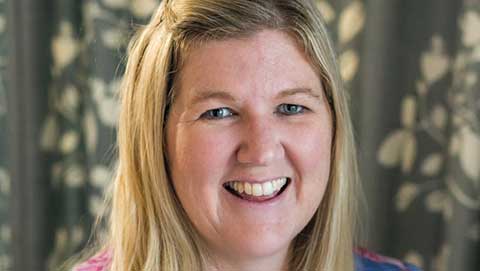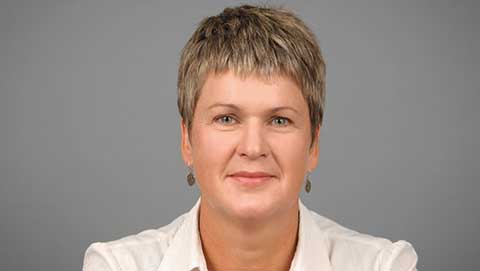A closer look at the future of food

What’s changing in how we grow food?
In addition to traditional ways to produce food, there are new ways to help produce food at scale to feed our growing population, whilst reducing the environmental footprint. While they may not all be relevant to NZ farms, it’s worth thinking about how these methods may integrate into NZ’s food production opportunities in the future.
Vertical Farming
This involves growing crops in vertically stacked layers of trays, housed within climate controlled buildings. Vertical farming allows food to be grown and produced closer to highly populated areas like cities, cutting down on land use and shipping. This will become more important as environmental pressures increase. For example, when COVID-19 reached Singapore – where the majority of food is imported – their food supply was all but cut off. Having the ability to produce foods in regions with little farmland or dense populations, helps futureproof food production and keep populations fed.
Vertical farming is already a reality for annual crops like leafy greens and herbs, but creating varieties and growing systems for perennial tree crops will be a little harder.
Lab-grown meat
We’ve heard a lot recently about lab-grown meat, which is produced through cultures of animal cells. It’s another way to offer options to consumers looking for more choice, and keep the growing population of the world fed.
While a lab-grown steak or rack of lamb may not be possible yet, it’s likely we’ll see lab-grown meat used for things like mince, chicken and pork where protein convenience is key.

What’s happening in the world of food science?
Advances in food science are helping farms be more productive and sustainable. Genetic Engineering, or Genetic Modification (GE/GM) is the science of modifying a plant or animal’s genes to produce desirable traits. While not being used in NZ yet, GM/GE is being used more and more around the world, so it’s something to keep an eye on for the future.
One example of this is CRISPR technology. CRISPR technology acts as a precise pair of molecular scissors that can cut a target DNA sequence, meaning it can be used as a gene editing tool. CRISPR cuts DNA at a highly specific point to cause a mutation which can, in turn, switch the targeted gene in an organism on or off for different outcomes. For example, gene editing might be able to help produce a crop with waxier skin, so it can survive longer in shipping and reduce wastage, or improve yield.
Gene editing technologies also have the benefit of making faster genetic progress than traditional breeding, achieving results in 2-3 years that would take ten years in traditional breeding programmes.
It’s an exciting area to keep an eye on for the future. Technologies such as CRISPR could help you to farm and grow more productively and sustainably. NZ has a way to go yet to decide if the opportunity can be accommodated in our current GM free positioning.

How can new food choices impact how you farm and grow?
There’s a strong consumer trend towards variety, where consumers demand more unique choices. Consumers are looking for more options beyond meat, rice, and wheat.
Currently NZ horticulture produces $8 billion of value from just 140,000 ha. Whilst not all our agricultural land is suitable for cropping, it’s estimated that there is more than 1.7m ha of land that could grow plant protein crops, based on slope, ease of access and climate. As weather patterns shift due to climate change, we’ll need to adapt what we grow to suit these changing conditions.
One option to explore is introducing alternative plants and grains to your farm’s rotation. Understanding the unique landscape including climate and soil parameters of your land, could mean it is favourable for growing crops such as quinoa, oats, or other crops, providing opportunities for diversification on your farm.
Exploring options you’ve never tried before can help you keep up with consumer demand for more variety on the plate, and also make your farming and growing system more flexible in the future, to better withstand the impacts of climate change and help manage your environmental footprint.

What are the opportunities for NZ farmers and growers?
NZ farmers and growers are already global leaders in premium, sustainable food and fibre. Continued effort will be required to maintain this position as other nations try to catch up to us. But with a growing global population, increased pressure from climate change, and changing consumer demand, it will become more and more important to look for new ways to optimise your farming and growing system. We need more food, and more food producers – which means farmers and growers will matter more than ever.
It’s not about swapping entire farming systems, or replacing one method of food production with another. It’s about continually adapting and learning, staying open to new ideas, perhaps having a trial paddock or two to test out opportunities that could work on your farm. Talk with your neighbours, industry good organisations and other experts about what they’ve seen or are doing. What issues are they dealing with? What opportunities do they see?
On-farm field day events as well as annual regional ones are great showcases to see what others are considering and working on. Farm and catchment groups are also great ways to share ideas and learn together. If you’re a Ballance shareholder, register to attend one of our in-person BallanceEx events. These involve future thinking experts alongside farmers and growers like you who are wondering where best to start.
Download the PDF version of this conversation
Like and subscribe to BallanceEx Future Farming Conversations
Dive deeper into the topic of the future of food and listen to the full conversation
Listen now







